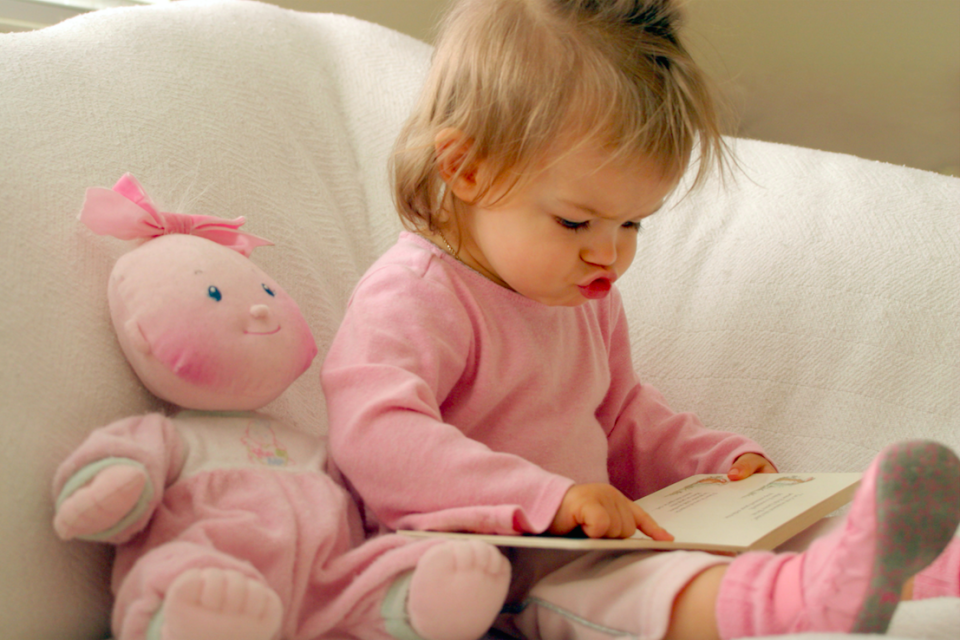Background Noise From The TV Can Hinder Toddlers Ability To Learn New Words

A new study has revealed background noise could have an impact on toddler ability to learn new words [Photo: Rex Features]
For many frazzled parents the TV can work as a sort of temporary babysitter (don’t judge!). Need to distract the kids for a bit? Plonk them in front of Iggle Piggle. We get so used to having CBeebies on-a-loop we barely notice the TV is even on. But new research has revealed that background noise from the TV or radio can affect toddlers ability to learn new words.
Scientists conducted experiments in which children aged around two were taught new words while hearing soft or loud background noise.
The findings revealed that only toddlers exposed to the quieter sounds successfully learned the words. While those who were exposed to distracting noisy backgrounds (we’re looking at you Mr Tumble) found it difficult to learn and memorise new words.
Further tests, which were reported in the journal, Child Development, revealed that the toddlers were better at grasping the meaning of words that had earlier been learned in a quieter environment.
This suggests that experience with the sounds of the words without distracting background noise subsequently helps children map those sounds to meaning.

Toddler’s ability to learn new words could be hindered by loud background noise [Photo: Rex Features]
“Learning words is an important skill that provides a foundation for children’s ability to achieve academically,” explained Psychologist Brianna McMillan, from the University of Wisconsin-Madison, US, and lead author of the study.
"Modern homes are filled with noisy distractions such as TV, radio, and people talking that could affect how children learn words at early ages.”
"Our study suggests that adults should be aware of the amount of background speech in the environment when they’re interacting with young children.”
A total of 106 children, aged 22 to 30 months, took part in the study. They were taught names for unfamiliar objects and then tested on their ability to recognise the objects when they were labelled.
Scientists believe the findings may be especially relevant to crowded low-income households that tend to have higher noise levels, due to more urban settings and potentially noisy environments.
Do you have the TV on in the background? Let us know @YahooStyleUK
Off-Grid Mum Defends Daughter Peeing Live On TV
Cafe Owner’s Post Threatening To Tell Off Children Sparks Debate About Stranger Discipline

